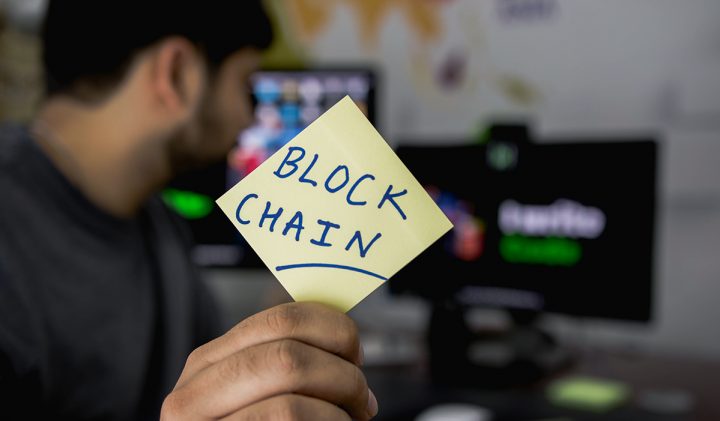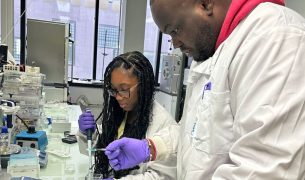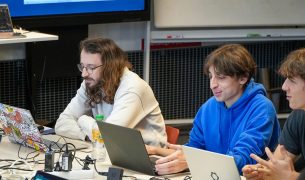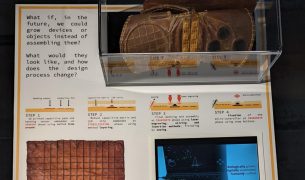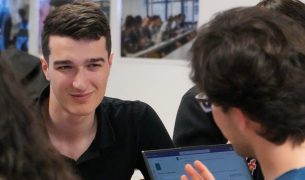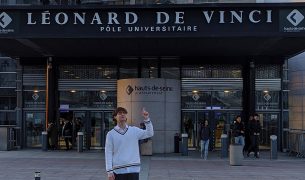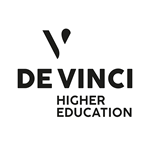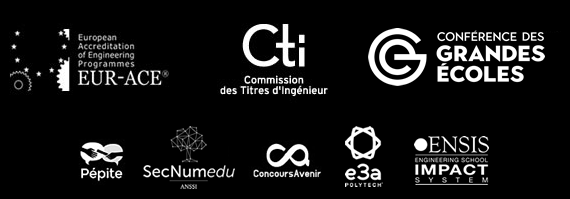As blockchain continues to revolutionize our world, ESILV students learn new skills to perform in the Blockchain space optimally. The engineering projects provide hands-on experience on the technologies that are transforming the way we complete transactions.
The fifth-year industrial innovation projects include partnerships with companies, startups and research labs that enable students to promote their work to the outside world and increase their visibility in the professional environment. The ESILV Engineering School offers several majors such as Finance, Fintech, Actuarial Science which equip students to lead at the frontier of the new digital economy. Here is a selection of blockchain-based projects.
Blockchain-based housing rental contract
The current system of security deposits on apartment rentals is not very effective. Sometimes the landlord refuses to return the deposit, or the tenant is not creditworthy. Also, the money tied up is useless, and there is no guarantee that the landlord has not already spent it. Faced with these problems, Smart-Caution is the solution!
It aims to allow our users to take advantage of the blockchain’s opportunities by putting owners and tenants in contact through a smart contract—a very secure means which, in addition to this, will generate interest. Indeed, thanks to Compound, the money that will be deposited will grow over time.
Our objective is to enable both parties involved in this contract to invest this money in a third-party smart contract that does not require the presence of an intermediary.
The owner and the tenant will agree on the amount and duration of the deposit. A contract will be generated and put on the blockchain only if both parties agree.
Problem? The Court of Kleros specializes in dispute resolution. Fast, transparent and affordable justice for all. It’s simple, you decide the terms, you validate the amount, and you get profit! This smart-contract will be accessible to landlords and tenants via a straightforward platform where everyone will have to create an account from which they will have access to all the information concerning their rental(s).
Timestamp on Blockchain
With the explosion of digital technology over the last decade, more and more solutions have emerged that allow companies to go digital for their remote document signatures. We created a time-stamp project to design a similar solution for our partner, the VYV Group.
This project’s main objective is to enable the generation of a digital document fingerprint to ensure a secure lifecycle. To achieve this, we relied on the Woleet API, capable of supporting the anchoring and the signing of such documents. It is essential to remember that the digital signature is not just a simple digital equivalent of a handwritten signature on a touch tablet screen.
We use a blockchain, in this case, that of Bitcoin, which seals the signatory’s commitment and guarantees the integrity of the signed document because it offers significant advantages in terms of security, immutability and transparency. Thanks to this process, the VYV Group’s documents can now be time-stamped and signed at a distance while maintaining their legal aspect.
Blockchain diploma certification
In order to embellish their career path during a recruitment procedure, some unscrupulous candidates may be tempted to lie on their CV. Inventing an experience or a diploma is becoming more and more common and recruiters are struggling to identify false CVs. This is why we have thought of a simple solution that would allow any recruiter to check the authenticity of a candidate’s diploma in just a few clicks.
Diplomapi2 is a solution based on the Oracle blockchain. In other words, it is based on a distributed database where diplomas are recorded and where each recording is cryptographically protected against falsification or modification.
First of all, the graduate’s information is recorded on a separate database. To this information is attached a digital signature which will allow us to find his diploma in the blockchain.
Our solution must meet the constraints of the RGPD law which ensures that every citizen has the right to erase their personal information from the Internet permanently. It is therefore impossible to record the student’s information on the blockchain.
Then we store the binary file of the diploma on the Oracle cloud. This file passes into a hash function that reduces it to a single string of 40 characters. It’s its digital signature that links it to the information in the blockchain.
Finally, in the blockchain, a digital signature is associated with its owner, which binds him to this information. In the same way, another signature links it to the binary file which represents its diploma.
In this way, our solution makes it possible to write in the blockchain a diploma and to associate a multitude of information to it. The recruiter only needs to consult them to realize the seriousness and honesty of his candidate.









